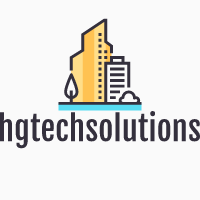How Blockchain is Transforming the Real Estate Industry
In recent years, blockchain technology has emerged as a disruptive force across various sectors, and the real estate industry is no exception. By offering more transparent, secure, and efficient ways to conduct transactions, blockchain is poised to revolutionize the real estate sector significantly. This article explores the potential impacts of blockchain on the real estate industry and how it might shape the future of property transactions.
Transparent Transactions
1. Smart Contracts
Blockchain enables the execution of smart contracts which allow transactions to be carried out without intermediaries, thus speeding up the process and reducing costs. These contracts automatically execute when the specified conditions are met, ensuring transparency and trust between parties.
2. Fraud Prevention
Due to the immutable nature of blockchain, records once entered cannot be altered, thus significantly reducing the possibilities of fraud. This technology can aid in curbing common real estate scams like forged documents and fake listings.
Efficient Processes
3. Streamlined Due Diligence
Blockchain can streamline the property due diligence process by providing a decentralized platform where all the necessary property information, including ownership history and land deeds, can be stored and accessed in real time, thus reducing delays in verification.
4. Cost Reduction
The elimination of intermediaries and the automation of processes, including contracts and settlements, reduce administrative and personnel costs, making real estate transactions more affordable.
Investment Opportunities
5. Tokenization of Real Estate
Blockchain facilitates the tokenization of real estate properties, allowing investors to purchase tokens representing a share of a property rather than buying entire properties. This makes investment in real estate more accessible and divisible.
6. Crowdfunding
By leveraging blockchain, real estate crowdfunding platforms can offer a decentralized marketplace where investors can collectively invest in properties, fostering inclusivity and diversification in the real estate investment landscape (Entrepreneur).
Improved Financing
7. Mortgage Lending
Blockchain can revolutionize mortgage lending by creating a secure and immutable record of all transactions, thus speeding up the approval processes and reducing the risks associated with loan fraud.
8. Lease Management
Blockchain technology can aid in automating lease management, enabling seamless and transparent lease transactions, and facilitating timely payments and renewals through smart contracts (Jlltechgroup).
Conclusion
Blockchain technology stands at the forefront of transforming the real estate industry into a more transparent, efficient, and inclusive sector. By integrating blockchain into various facets of the industry including transactions, investments, and financing, stakeholders can expect a reduction in fraud, streamlined processes, and an expansion of investment opportunities. As the industry continues to adopt this technology, it paves the way for a new era in real estate characterized by transparency, inclusivity, and efficiency.

